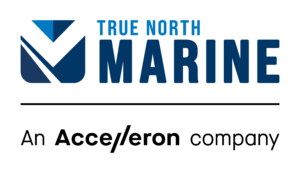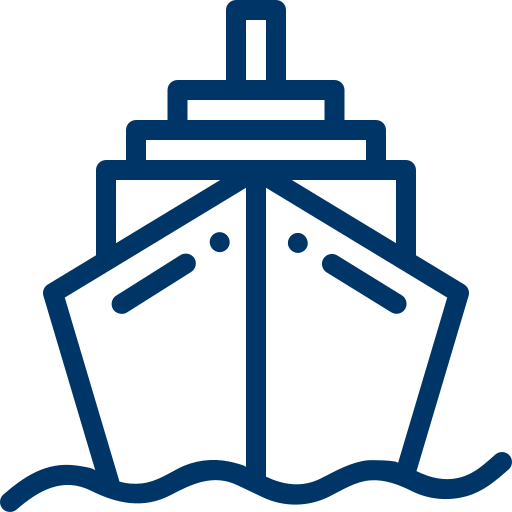By Benjamin Merrell
The recent outbreak of novel Coronavirus (2019-nCoV), centered around the city of Wuhan in China has been declared a global public health emergency by the WHO (World health Organization). The full extent of the Coronavirus’ reach and implications for public health remain to be seen, however the ramifications for global trade and commodity prices are already being felt. Oil prices and stock in Chinese companies have each been volatile since the start of 2020, and on Feb 4th, Hyundai announced they would be suspending production of automobiles at their South Korean factories; potentially a worrying sign of future supply chain woes in Asia and globally.
The Coronavirus outbreak has forced several countries to resort to stringent quarantine checks in their battle to contain the spread. These measures are starting to have a knock-on effect for the global commodities shipping market. Delays in loading and delivery of cargoes in the tanker, dry bulk and container shipping segments are being reported due to ships being forced to sit idle amid a lack of crew availability. Find below how TNM can help our clients minimize disruption due to these quarantine measures.
U.S. Response
The U.S. coast guard is issuing a Marine Safety Information Bulletin (MSIB 02-20) with quarantine procedures for both passenger and commercial ships that have made port calls in China (not including Macau or Hong Kong) in the 14 days prior to arriving in the U.S.
- All vessels are required to report to the Coast Guard Captain of the Port (COTP) if any passengers or crew have fallen ill or died within the 15 days prior to arrival at a U.S. port.
- Any passenger vessels that have been to China or have embarked passengers who themselves have been to China within the last 14 days are likely to be denied entry to U.S. ports. If all passengers on board have not been in China within the last 14 days and do not exhibit symptoms of illness, the vessel will be able to continue normal operations. There are also entry restrictions for Chinese nationals and other non-citizens which may affect an individual’s ability to enter the U.S.
- Commercial vessels that have been to China or have embarked crew who’ve been to China within the last 14 days will be allowed to conduct normal operations. However, crew will only be allowed to leave in order to conduct loading and provisioning operations.
These precautions are in line with similar ones being implemented in Japan and Hong Kong where currently two cruise ships are under quarantine after passengers who disembarked later tested positive for the Coronavirus. For Charterers or shipowners there is a risk of major disruption if a crew member falls ill (due to Coronavirus or otherwise) within 14 days of arrival at port. The Coast Guard has said they would treat situations like these on a case-by-case basis so the extent of potential delays is unknown. Last week in Civitaveccia, Italy cruise passengers were delayed disembarking a ship while two passengers suspected of having the virus were tested. While the tests eventually came back negative, the ship was nonetheless hampered.
For more information, consult the U.S. Coast Guard’s bulletin: http://bit.ly/MSIB02-20
China’s Response
Charterers and owners should also be aware of the response to the Coronavirus being implemented in Chinese ports. At various ports in China vessel crew are restricted from disembarking and in some ports mandatory health assessments are being conducted by the port authorities. This information comes courtesy of the Huatai Insurance Agency, a marine insurer based in Beijing, and they have also reported a number of other detrimental effects of Coronavirus:
- Due to infection and the extended lunar new year holiday, at many ports there is a lack of stevedores resulting in delays loading and unloading cargo.
- There is also a limited number of trucks to transport goods from port due to entry being restricted to local license plates.
- Transshipment up the Yangtze is potentially affected due to restrictions at Wuhan’s port.
For more information, see the bulletin courtesy of Huatai Insurance Agency: http://bit.ly/HuataiBulletin
Due to the lengthened lunar new year holiday as well as the delays, some analysts are projecting that China’s ports will lose about 6 million TEUs in Q1 of 2020. In response to the slowdown some ports including Shanghai, the worlds largest, are offering exemptions or reduced port fees in a bid to entice charterers.
Global Response
Other ports globally have taken various measures to limit their exposure to the virus. In Singapore the port Authority is implementing temperature screening at all sea checkpoints and those suspected of infection will be forwarded to local hospitals for additional testing.
The port of Gibraltar is following similar protocols as the U.S. and has announced their intention to initially refuse clearance to vessels with potentially ill crew, pending assessment by other government agencies.
In Australia, pilots will be delayed or prevented from boarding any ships which have had a port call in China within the last 14 days. This is in addition to other precautions similar to those implemented by other ports including case-by-case assessment of ships with potentially ill crew.
The health hazards posed by novel Coronavirus outside of the epicenter at Wuhan should not be overstated and the global economic consequences are not fully understood. In the meantime however, owners, charterers and other interested parties should also take steps to limit their exposure to these economic consequences.
For a more comprehensive list of local restrictions see this list compiled by North: http://bit.ly/CoronavirusNorth
Managing Coronavirus Delays at Ports
Starting 02 Feb, 2020, Australia has introduced a 14-day quarantine period for vessels that are arriving from China and other countries are expected to announce similar guidelines soon. Consequently, port delays due to Coronavirus quarantine measures are particularly relevant for owners / charterers servicing routes between Southern Chinese ports and Northern Australia where a vessel sailing basis full speed may normally be able to make the route in fewer than 10 days.
With the added quarantine measures, these vessels now need to wait out the 14 day quarantine period before continuing to their destination. By optimal route planning we can help you adjust your ETA to complete your quarantine at sea while arriving “just in time”.
Given the increasing severity of the outbreak, it is currently unclear how long these quarantine measures will remain in effect and it is possible steps like these will be necessary for an extended period.
You might not be able to do much about delays due to Coronavirus you can reduce delays due to weather. At True North Marine we bring unparalleled customer service to bear in our interactions with owners, charterers, and everyone in between. We’re also leading the charge developing the next generation of weather routing technology through our partnership with Ivado — an AI and data science juggernaut. If you’d like to know more drop us a line!




